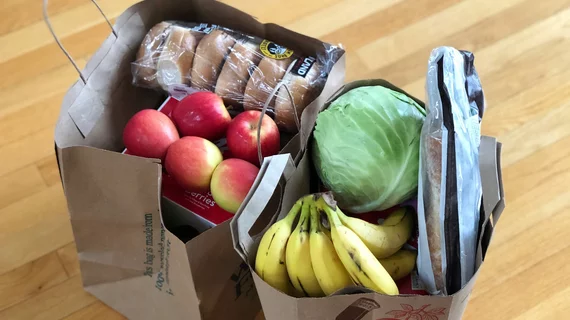Instacart, DispatchHealth launch joint effort to mitigate food insecurity
A grocery-delivery giant is partnering with a commercial provider of medical house calls to bring healthy meals to patients in their homes.
Instacart and DispatchHealth announced their collaboration Jan. 23, describing their goal as reducing the impact of food insecurity on individuals’ wellness, and with it, on population-level healthcare costs.
Through the program, DispatchHealth clinicians will have access to the “platform, products and partnerships” of Instacart Health. The caregivers will offer their patients food stipends and medically tailored shopping lists. They’ll also be able to send food straight to patients’ doors with speed and accuracy, “which could help boost adherence rates,” according to the announcement.
DispatchHealth CMO Phil Mitchell, MD, says patients’ wellbeing is “closely tied to their environment, and we witness firsthand how social determinants like nutritional accessibility affect their overall health.”
Instacart Health VP and GM Sarah Mastrorocco add that the partnership will help ensure that DispatchHealth patients “can get the essentials they need delivered from the local retailers they trust.”
Denver-based DispatchHealth was founded in 2013 and operates in 21 states. Instacart is headquartered in San Francisco, employs around 3,500 and is worth around $10 billion.
Full announcement here.

